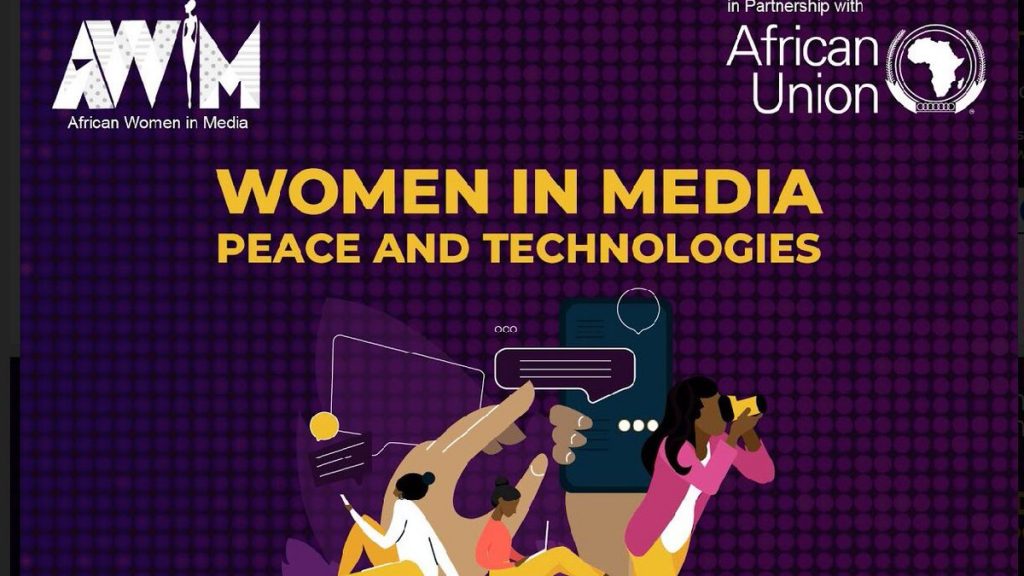 Cameroon : Dr. Yasmine Ndassa, the research scientist turned data storyteller
Cameroon : Dr. Yasmine Ndassa, the research scientist turned data storyteller
 Julien Ngum Che : advocating for the rights of displaced women and youth in Cameroon
Julien Ngum Che : advocating for the rights of displaced women and youth in Cameroon
 Chilufya Mutale Mwila, the Zambian entrepreneur driving financial inclusion across Africa
Chilufya Mutale Mwila, the Zambian entrepreneur driving financial inclusion across Africa
 Wangari Muchiri, the Kenyan engineer committed to accelerating the ecological transition in Africa
Wangari Muchiri, the Kenyan engineer committed to accelerating the ecological transition in Africa


On Monday December 7th, the African Women in Media (AWiM) platform organized the 4th African Women in Media virtual conference. The objective was to promote gender equality and access for women to decision-making positions in journalism. The event organized in partnership with the African Union, was under the theme: “Women in the media, peace and technology”.
There are still few women in journalism and very often, they are absent from decision-making circles, noted from the start Dr. Yemisi Akinbobola, co-founder of AWiM, who further underlined the impact of this situation on the low visibility of women in the media. Of all Wikipedia profiles, only 17% are dedicated to women, she noted, insisting that most Wikipedia journalists are male.
For her part, Anna Mayimona Ngemba, journalist and president of the Congolese Union of Women in the Media (UCOFEM), noted that unlike their male colleagues, women journalists must be excellent to target the same positions. Likewise, she underlined that several social perceptions towards women prevent women journalists from advancing in their careers. “A few years ago, I was contacted by an organization to conduct investigations in conflict zones in Congo. I accepted the offer, but when I told my colleagues about it, they tried to discourage me, telling me that these were dangerous areas for women. But I stuck to my decision. In the end, they were surprised at the job I had done, “she said.
In other contexts, the image of female journalists is often associated with that of prostitutes, as Khadija Patel, a South African investigative journalist, pointed out. “Often when a female journalist manages to get information from certain sources, she is accused of having slept with her source to get it,”she explains. Moreover, women journalists are often victims of sexual harassment as a condition for professional progress, noted the speakers.
For the panelists, it is necessary to change perceptions and mentalities to guarantee gender equality in journalism and the access of women journalists to decision-making positions. To overcome the obstacles preventing progress in their careers, women journalists are called not to limit themselves to local opportunities, but also to seek opportunities at the international level.
In addition to this panel, two others dealt, in particular with peace and technologies for the empowerment of women.The conference was also marked by an award ceremony for journalists who won the Labor Migration Award for Reporting.